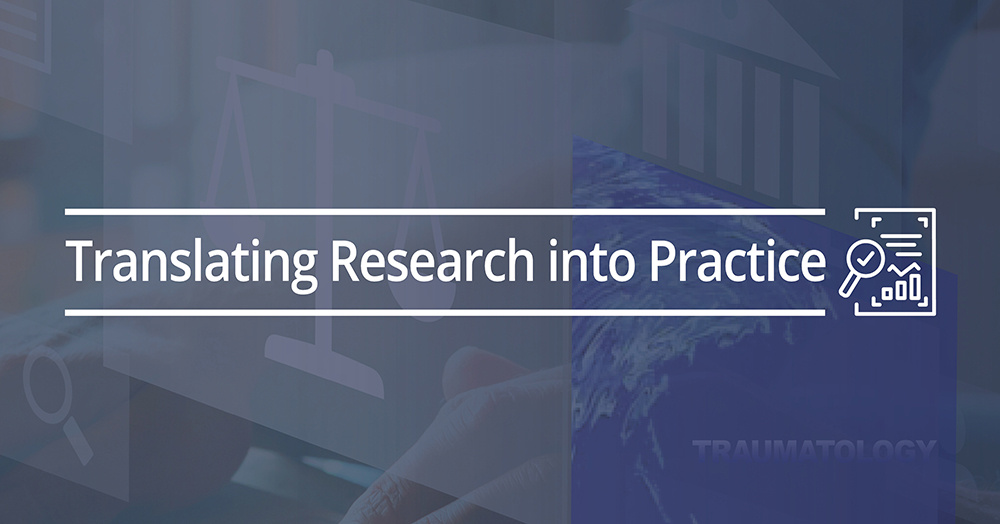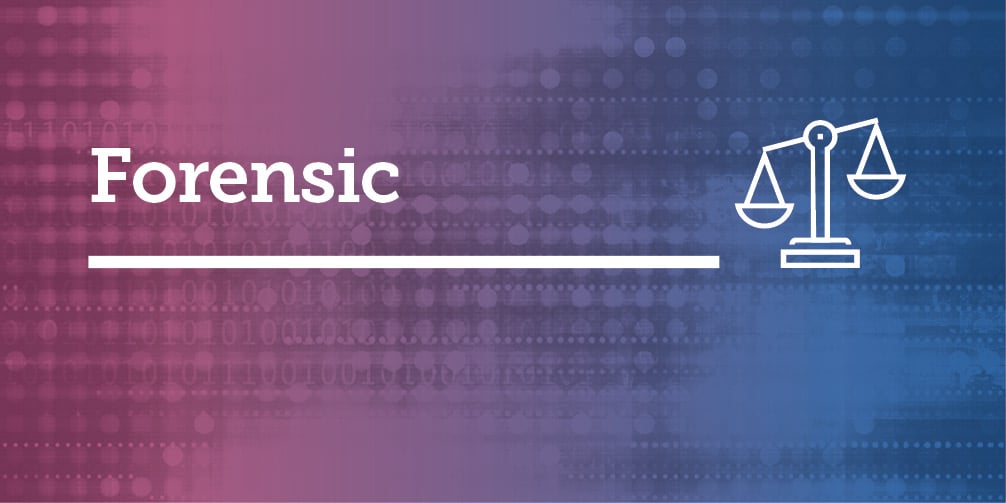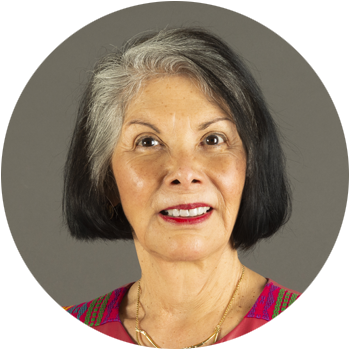Featured Article
Article Title
From the Brink of Survival to “Become the Person That They Want to Become”: Gender Minimization, Refugee Trauma, and Growth in Women From Afghanistan
Authors
Melika Taheri - School of Psychological Sciences, College of Engineering, Science & Environment, University of Newcastle
Sally Fitzpatrick - School of Psychological Sciences, College of Engineering, Science & Environment, University of Newcastle, Everymind, Newcastle, New South Wales, Australia
Lynne McCormack - School of Psychological Sciences, College of Engineering, Science & Environment, University of Newcastle
Abstract
There is a paucity of research highlighting the impact of trauma on women from refugee backgrounds despite the likelihood that many experience gender-related traumatic events on their often-protracted journey from their country of origin to postsettlement. Conversely, research indicates that despite distress, growth out of such adversity is possible. Therefore, this idiographic study explored the subjective lived experiences, both positive and negative, of six Muslim women from Afghanistan, who resettled in Australia for over a decade following refugee status. Semistructured interviews provided in-depth data which were analyzed according to the protocols of interpretative phenomenological analysis. One overarching superordinate theme: From the brink of survival to becoming the person that they want to become, represented three subordinate themes: complex overwhelm, prejudice and gender minimization, and recovery, growth, and giving back. The thematic findings reflect the participants’ transition through an array of complex and gender-specific traumatic events both within their country of origin, and the refugee journey. Recovery postsettlement came from empowering oneself through seeking help, mentoring other women from refugee backgrounds, and engaging with the host society. These participants previously constrained by social contexts, misogynous, and patriarchal umbrellas slowly dismantled limitations to their life purpose as they learned of opportunities and passed this knowledge on to others, embraced communal adaption, and offered reciprocal growth. Finally, this study highlights potential gender-specific traumas throughout the refugee journey for women and girls, and the need for specific delivery of services from program providers to this vulnerable group.
Keywords
Interpretative phenomenological analysis, refugee trauma, resettlement, posttrauma growth, women
Summary of Research
“This idiographic study aimed to seek positive and negative interpretations of the lived refugee experiences of women from Afghanistan now settled in Australia, how they make sense of their plight as women before, during, and after fleeing, the potentially traumatizing events that impacted them as displaced individuals and moving forward postsettlement. Gender often plays a part in the type of traumatic threat an individual may experience… Regardless of the general perception that women from refugee backgrounds are safe postsettlement, ongoing gender-specific trauma may continue alongside the acculturation and adaptation process…women are at risk of gender minimization, a bias that maintains intergroup devaluing behaviors toward minority groups in order to maintain traditional superordinate group values…” (p. 1- 2).
“Posttrauma growth has been observed throughout the literature in individuals exposed to primary and secondary trauma, including survivors of interpersonal assaults and wars/armed conflict. Not dissimilarly to other cohorts suffering trauma distress, Uy and Okubo (2018) suggested that former refugees do not intentionally engage in processing refugee trauma until they have resources accessible, including social support and mental health services and remaining in immediate survival mode is no longer necessary” (p. 2).
“One overarching superordinate theme, from the brink of survival to becoming the person that they want to become, represents the process of integrating traumatic female-specific refugee experiences during adolescence and adult life, specific to Muslim women from Afghanistan who resettled in Australia. Looking back as adult women, their journeys are explored through three subordinate themes: complex overwhelm, prejudice and gender minimization, and recovery, growth, and giving back” (p. 4).
“Complex overwhelm brings to life the intensity of threat and fear specific to these women from refugee backgrounds during their adolescence and early adult life…Survival-driven decision making…pervades participants’ experiences of fleeing founded on the havoc of necessity…Participants perceive the refugee journey as ‘a big transition’ that ‘robbed … childhood’…recognize the systematically fabricated misinformation they experienced in childhood…where basic human rights and inclusive education rights were denied to women… perceive that layers of trauma, in turn, impact layers of mental health….recognize that the ‘general public means well’ and ‘cannot be blamed’... gender minimization underpinned by a bias of patriarchy and control, they confront an alternate prejudice… perceive a closing gap in the wider community’s apprehension toward the journey of women from refugee backgrounds….Recovery, growth, and giving back reflect the journey of these women postresettlement in Australia… all they know is to ‘not give up’—and to seek to make meaning of the refugee traumatic journey….The fluidity of spirituality mirrors the privilege of choice that has accompanied the refugee journey... reflect on seeking excellence by continuously giving themselves permission to ‘learn,’ ‘make mistakes,’‘to sort of find … way’ and ruminate on their willingness to ‘go up,’ ‘improve more,’ and ‘keep striving’ in society….A determination to reconstruct the shattered meaning of home, self, and life pervades the participants’ postsettlement futures… comprehend that ‘not everything is as fixed and solid and black and white as you think it is.’...Participants also reflect on ‘a sense of duty and responsibility’ instilled by growing up in ‘a very communal community’ (p. 4-6).
“This idiographic, phenomenological study… highlighted experiences of gender minimization, trauma, and eventual posttrauma growth specific to these participants' narratives. Importantly, this study recognized the complex multilayered nature of experiences specific to women from refugee backgrounds…Complex overwhelm permeated every survival-driven action where participants reflected on stolen childhoods, being purposefully misinformed, and impacted by layers of mental health concerns…. A strong sense of responsibility aimed at promoting education against prejudice and diminishing gender minimization within the minority refugee groups now living in their host country was future oriented…participants intentionally became advocates of change, inviting nonrefugees to Walk in their shoes through the disclosure of unfamiliar narratives of female-specific refugee traumatic journeys. Ultimately, from the brink of survival, recovery brought growthfullness rooted in spiritual fluidity, engaging with excellence, appreciating life, rebuilding compassion, empathy, and meaning, and passion for giving back” (p. 7-8).
Translating Research into Practice
“Given the paucity of studies on female-specific refugee trauma, recovery, and growth postsettlement…there would be great value in exploring differences in the interpretation of refugee experiences specific to women from different sociodemographic backgrounds as well as different historical times of resettlement to explore how women from refugee backgrounds integrated their trauma experiences in host societies.
Similarly, exploring the whole refugee journey, rather than only one phase, as well as the role of social contexts, would offer a greater understanding of recovery and potential for posttrauma growth within this population.
Additionally, longitudinal studies could provide an opportunity to document other contributing factors in promoting or inhibiting posttrauma growth, including stigma-rooted gender minimization” (p. 9).
Other Interesting Tidbits for Researchers and Clinicians
“...Early minimization as females (e.g., denied education rights in the country of origin) as well as the ongoing traumatic experiences along the road to resettlement, can be a springboard for skills development, and a purposeful drive to self-determination modeling for others’ growth. Experiencing ongoing trauma during resettlement, as well as throughout the refugee journey (i.e., stigma-rooted gender minimization postsettlement), were negated by supportive communal values allowing these participants the fluidity to embrace new opportunities and empower other women from similar backgrounds.
All participants disclosed that despite the difficult journey as refugee women where women’s rights, opportunities, and value were minimized, their new environment and resettlement offered them opportunities to connect to their adult selves, ‘not give up’ and to seek to make meaning of the many incidents of traumatic distress throughout the refugee journey. In redefining their lives and becoming who they wanted to become, the cognitive struggle to define their own futures included ‘being there for everybody.’Underpinning their growth out of adversity was their ability to connect to their own strengths and in turn mentor others and give back to the community beyond gender minimization” (p. 9).
Additional Resources/Programs
As always, please join the discussion below if you have thoughts or comments to add!





























